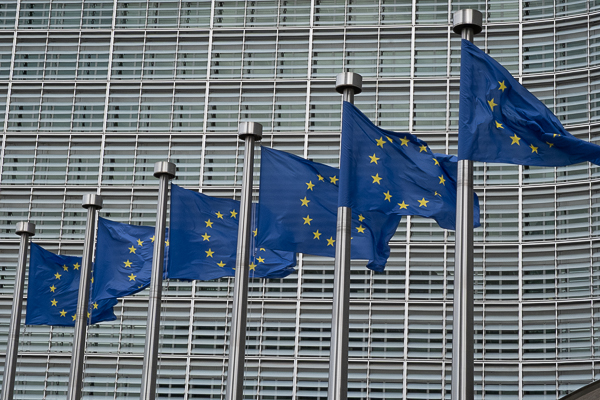 Brussels, Belgium;
Credit: Ali Sahib, Chronicle.lu
Brussels, Belgium;
Credit: Ali Sahib, Chronicle.lu
On Tuesday 22 October 2025, the European Commission unveiled its 2026 work programme, which outlined a series of actions to help build a more sovereign and independent Europe.
According to the European Commission, the work programme, titled “Europe's independence moment”,addresses current and future challenges arising from threats to our security and democracy, to conflicts and geopolitical tensions, to risks to our economy and industry, and accelerating climate change. It builds on the commitments set out in the Political Guidelines and mission letters sent by President von der Leyen to the College of EU Commissioners and the ideas set out in the 2025 State of the Union address.
The Commission said the work programme “doubles down on the current core priorities of the Commission”by aiming to strengthen competitiveness, lead in clean and digital innovation, strengthen our unique social model and ensure collective security.
European Commission President Ursula von der Leyen said: "The 2026 work programme marks another significant step towards a stronger, more sovereign Europe. We will continue working closely with the European Parliament and the Council to deliver on Europe's priorities, to boost competitiveness, harness the power of our Single Market, simplify our rules and address the affordability crisis. Together, we will protect our citizens and uphold our values."
The Commission has said that in 2026 it will continue to cut red tape for people, business and administrations. Its first overview report on simplification, implementation and enforcement, also adopted on Tuesday 22 October, highlighted the progress achieved so far – such as the six omnibus packages and other simplification proposals aiming to bring over €8.6 billion in annual cost savings for business and citizens.
According to the Commission, many of next year's initiatives will focus on making EU laws simpler and reducing costs. Several simplification proposals are foreseen across key sectors – including automotive, environment, taxation, food and feed safety, medical devices and simplifying energy product legislation.
The overview report presents the Commission’s measures to support Member States when implementing EU policies, as well as key enforcement statistic and actions. The Commission said it is actively pursuing over 1,500 ongoing infringement cases to achieve the full implementation of EU rules, and therefore their benefits for people and businesses.
The European Commission's key deliverables for the 2026 work programme:
• Sustainable prosperity and competitiveness: The Commission will pursue its work to strengthen Europe's industrial base and support Europe's strategic industrial sectors and jobs through a new Industrial Accelerator Act. It will increase Europe's resilience in critical raw materials supply through the creation of a Critical Raw Materials Centre, as well as the Circular Economy Act. And it will aim to substantially unlock the potential of the Single Market by 2028 by removing barriers, establishing a European Innovation Act, setting up a 28th regime for innovative companies and promoting a “fifth freedom” for knowledge and innovation.
• Defence and security: We will build on the Readiness 2030 framework strengthening the EU's defence capabilities and enhancing cooperation with strategic partners are key priorities. We will work on flagships as European Drone Defence Initiative, which is essential for the Eastern Flank Watch. The Commission will also reinforce the protection of the Union's borders, fighting organised crime and enhancing cross-border critical communication systems. We will focus on putting the Pact on Migration and Asylum into practice.
• Social model and innovation: To address issues that European families face every day, we will put forward a series of measures to address affordability and costs of living crisis. We will propose a Quality Jobs Act. The Fair and labour mobility package, including the skills mobility initiative will make the qualifications more portable. Root causes of poverty and the housing crisis will be addressed.
• Quality of life - food, water, nature: The Commission will put forward the livestock strategy and review rules on unfair trading practices in the food chain to support European farmers. It will ensure climate resilience through the European climate adaptation plan. The Ocean Act will guide European ocean governance.
• Democracy and Rule of Law: The Commission will help to shield democratic institutions against extremism and disinformation, enhance consumer protection and review anti-fraud measures. We will look closely at issues around young people, particularly children and social media building on recommendations of the Panel of experts. The Commission will continue building on the Equality Union through new strategies on gender equality and disability rights.
• Global engagement: Global partnerships will be reinforced, and EU will continue to stand firmly with Ukraine, providing steadfast support for its urgent financial and military needs and reconstruction efforts. And its EU integration efforts will continue to be supported, alongside Moldova. Humanitarian aid will also be reformed for faster, more effective crisis responses. We will roll out our Pact for Mediterranean. We will put forward a Middle East strategy, including supporting the transition in Syria and Lebanon.
The Commission stated that ambitious policies need to be underpinned by ambitious resources, as outlined in the recent proposal for a Multiannual Financial Framework (MFF), amounting to almost €2 trillion. The Commission, in parallel, called on the European Parliament and the Council to swiftly agree on this framework and to advance the key legislative priorities.
Every year, the Commission adopts a work programme setting out the list of actions it will take in the following year. The work programme informs the public and co-legislators of political commitments to present new initiatives, including simplification proposals, withdraw pending proposals and review existing EU legislation. The work programme is the result of close cooperation with the European Parliament, Member States and the EU’s consultative bodies.








